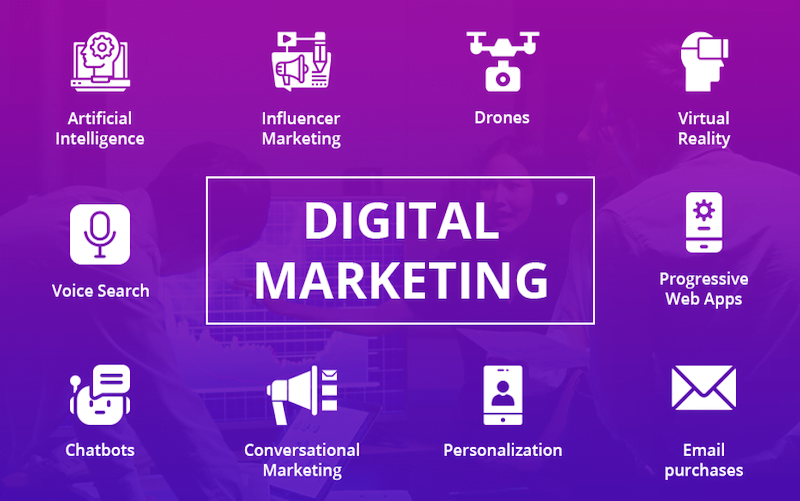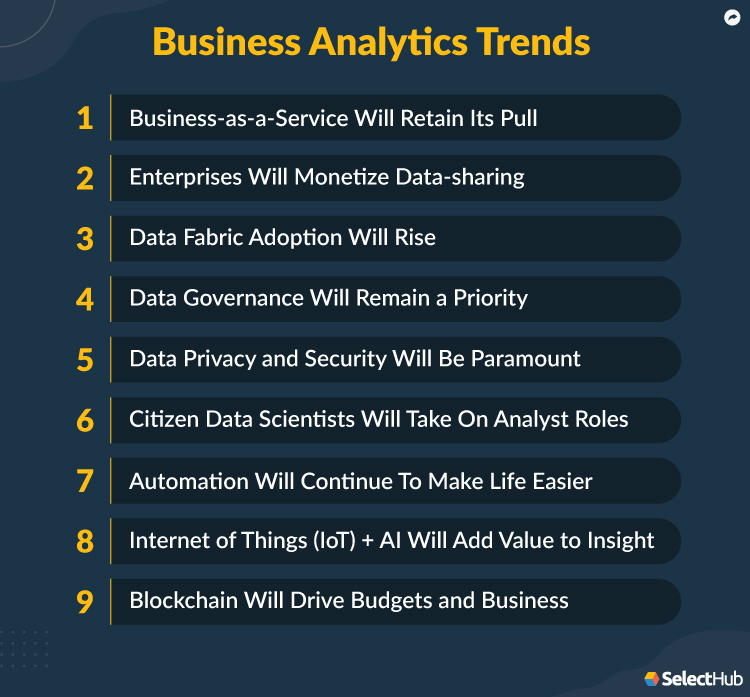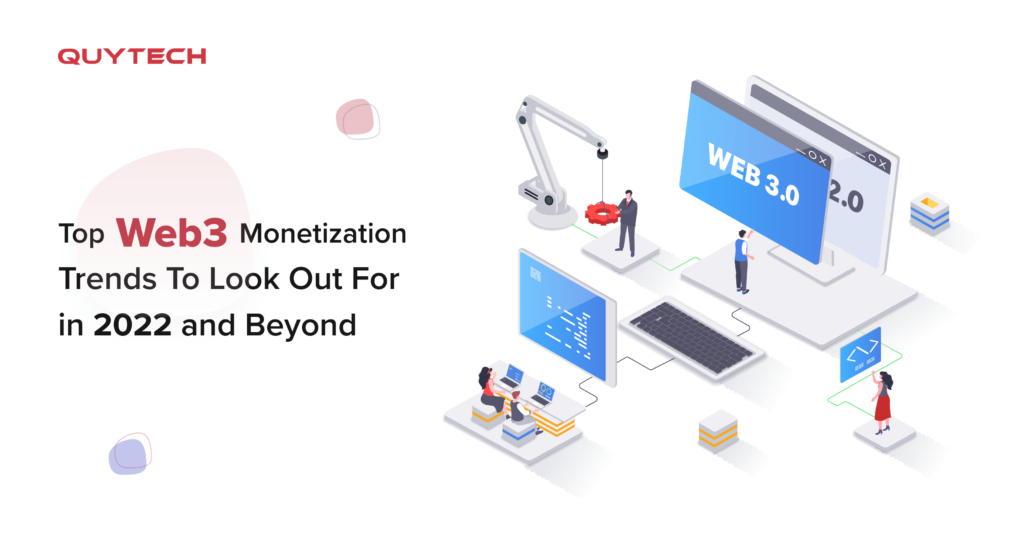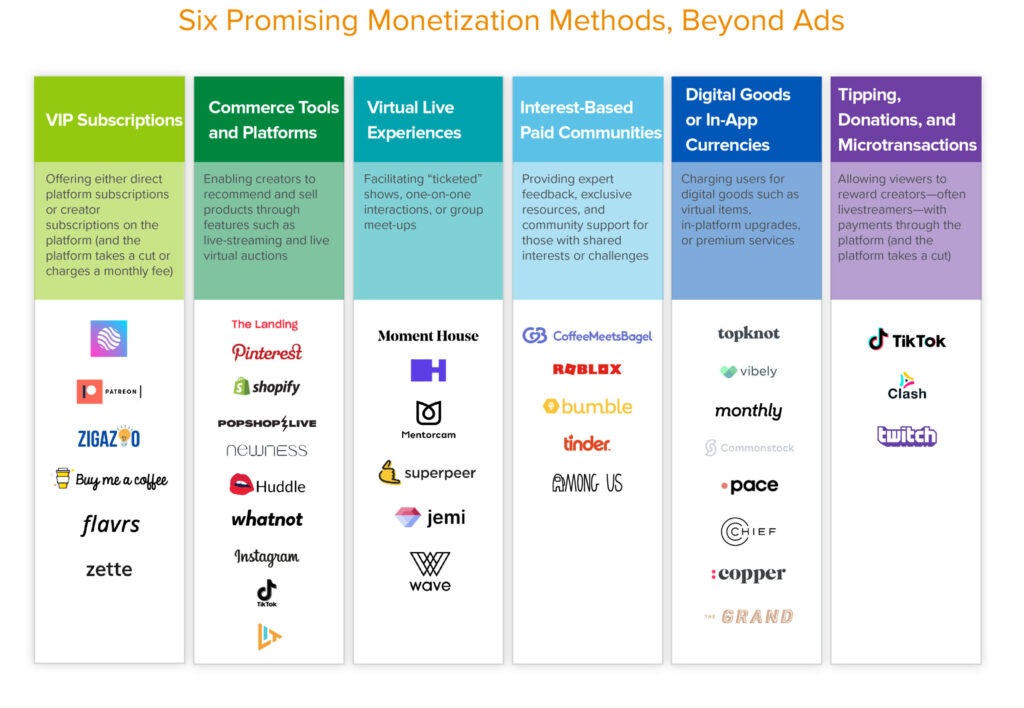Introduction
We’ve stepped into an era where artificial intelligence (AI) is more than just a buzzword; it’s a powerful tool capable of revolutionizing the online business landscape. Interestingly, the potential for monetizing AI in online businesses has been a hot topic for discussion, and I’m here to shed some light on the current trends.
The Role of AI in Modern Online Business
AI’s influence in online businesses is sweeping and pervasive. Let’s take chatbots, for example; these AI-driven assistants are transforming customer relations, offering timely responses and tailored assistance. They reduce the workload on human personnel and increase efficiency, leading to lower operation costs and higher returns. Advanced machine learning algorithms are transforming analytics, enabling businesses to make informed decisions based on predictive output. AI is enabling personalization at scale, allowing businesses to tailor experiences for individual customers and enhance customer satisfaction.
The Scope and Potential of AI for Online Business Monetization
The scope for monetizing AI extends well beyond chatbots and data analytics. Consider the role of AI in content creation, ad targeting, and fraud detection: AI-generated content can mimic human creativity, ad targeting is made more efficient by AI’s predictive capabilities, and AI-powered fraud detection systems are more robust and reliable.
These are just a few ways AI is transforming the e-commerce industry. It is unleashing new monetization strategies that elevate customer experience while optimizing operational efficiency. As we move forward, we can expect to see more innovative and diversified applications of AI in the online business landscape. So, if you run an online business or plan to do so, it’s time to jump on the AI bandwagon. It’s more than just a trend — it’s the future of online business.

This image is property of www.wordstream.com.
Understanding AI in Online Business
Online businesses are constantly looking for innovative ways to increase customer engagement, improve efficiency, and ultimately drive profits. One promising tool that has become paramount in the digital business era is artificial intelligence (AI). To fully grasp how you can monetize AI in online business, it’s crucial to understand what AI is, the different forms it takes and how it operates in an online business setting.
Definition of AI
The term AI, or artificial intelligence, refers to the capability of a machine or computer program to mimic intelligent human behavior. In the context of online business, AI can boost operations by handling tasks such as customer service, predictions, and sale recommendations. In essence, AI can execute complex tasks that would otherwise require human intelligence but with more efficiency and accuracy.
Different forms of AI
AI is not just a monolithic entity, but it comes in several forms, each suited to different applications. Majorly, it comes in the form of chatbots which simulate human conversation to handle customer queries. Then, there’s machine learning, a subset of AI that focuses on the development of algorithms that enable systems to learn from data without explicit programming. Even more advanced is deep learning, that uses neural networks to mimic the human brain’s decision-making process and capabilities.
How AI works in an Online Business Environment
In an online business ecosystem, AI operates by collecting and analyzing vast sets of data to provide well-informed business decisions and make predictions. It augments customer service by using chatbots that respond to customer queries immediately. Furthermore, through the predictive analysis, AI helps businesses understand consumer behavior, helping them tailor their marketing strategies for maximum impact. With these applications, businesses can monetize AI by enhancing efficiency, driving customer engagement, and stimulating growth.
Now that we understand what AI is, its various forms, and its role in an online business, the next step is to see how we can leverage it to drive revenues and stay ahead of the competition.
The Significance of AI in Online Business
As an avid follower of the digital world, I have noticed a significant trend: the role of AI in optimizing and monetizing online businesses is increasingly pivotal. AI is no longer a futuristic buzzword; it’s here, tangible and transformative. I have seen several major trends unfolding and wanted to discuss these for a clearer understanding of how AI can drive revenue in an online business.
Enhancing customer experience
For starters, customer experience has taken the front seat in online business strategies. The success mantra seems to be – “Make your customers happy, and they’ll keep coming back”. AI takes this a mile further. Chatbots that mimic human conversation, algorithms that precisely recommend “what to buy next,” AI has reshaped the way customers interact with businesses. The better the experience, the happier the customers, translating into better sales and consequently, more revenue.
Personalizing Sales and Marketing
Then, personalized sales and marketing are also reaping the benefits of AI. Nowadays, customers don’t just appreciate personalized experiences; they expect it. AI tools can analyze vast amounts of data to understand individual preferences, buying habits, browsing patterns, and more. This way, businesses can tailor their approach to meet specific requirements, enhancing customer satisfaction, and boosting revenue.
Improving Business Processes and Decision-making
Now, let’s talk about the internal processes. AI can streamline business processes and enhance decision-making – an underrated but potent revenue generator. AI systems can process and interpret data far quicker and more accurately than a human, allowing businesses to make swift, data-driven decisions. From managing inventory to predicting market trends, AI can do it all, ultimately leading to better profits.
In the ever-evolving landscape of online business, AI is the game-changer. Harnessing these trends can open a new door of opportunities, enhancing not just customer experiences, but also sales and decision-making processes. Get ready, because the AI revolution has only just begun!

This image is property of www.selecthub.com.
Monetizing AI in Online Business: A Look at Current Trends
The advent of artificial intelligence (AI) presents fascinating opportunities for monetizing online businesses. AI’s potential for personalization, scalability, and efficiency has spawned novel business models currently disrupting the digital landscape. Let’s explore how AI is generating revenue for online businesses.
Subscription Based AI Services
The first emerging trend that I’ve noticed is the subscription-based AI service. Companies are providing AI-powered tools to their customers on a subscription basis. Such a subscription gives businesses access to powerful AI capabilities without the cost and difficulties that come with developing these technologies in-house. For instance, AI-powered CRM software, customer service chatbots, or predictive analytics tools used for forecasting market trends or user behavior.
AI Driven E-Commerce
The next trend reshaping the online business landscape is AI-driven e-commerce. Personalized shopping experiences, created by AI algorithms, which analyze users’ purchasing histories and browsing behaviors, are significantly enhancing customer engagement. AI is also being utilized for inventory management, price optimization, and fraud detection, leading to decreased overhead costs and improved operational efficiency for e-commerce businesses.
Analysis and Insight Selling Based on AI
Finally, there’s the trend of selling AI-derived insights. AI’s capability for data analysis is unmatched – the technology can process vast amounts of information to derive actionable insights in real time. Many companies are now leveraging this to offer businesses valuable reports and market analyses. This service model shows how the insights generated by AI can be made accessible and useful to a wider audience, helping companies make informed decisions and ultimately increase their profits.
These trends showcase the various ways in which AI can be and is being monetized in online business. As AI continues to evolve and become more integrated into our digital activities, these trends are only likely to proliferate, offering even more opportunities for online businesses and entrepreneurs.

This image is property of www.quytech.com.
Case Study: Chatbots and AI
In today’s digital economy, the role of chatbots and AI in driving online business is more significant than ever. I find it fascinating how these technological tools are reshaping the ways businesses interact with their customers.
The role of chatbots in online business
Online businesses are leveraging these AI-powered chatbots to deliver personalized customer service and enhance their user experience. A chatbot can understand and respond to customer enquiries instantly, thus providing real-time, personalised customer service. I’ve noticed this trend grow substantially in recent times and the speed, accuracy and 24/7 availability of chatbots make them an excellent tool for user engagement. What’s more, they collect user data that presents an incredible opportunity for businesses to understand customer behaviour and preferences, and deliver a more personalized experience.
How chatbots are being monetized
When it comes to monetizing these chatbots, it’s not just about customer service. There’s a lot more that businesses can tap into. One common method for monetization is lead generation. Businesses can adopt intelligent chatbots to interact with visitors, identify potential customers and collect user information – a sales strategy that’s proving incredibly effective for many. Another method that I particularly find interesting is businesses integrating chatbots into their e-commerce platforms to drive sales. These chatbots can recommend products based on a customer’s browsing history creating a personalized shopping experience that often leads to increased sales.
As technology advances and AI becomes even more sophisticated, it’s clear that the role of chatbots will only continue to evolve. It’s increasingly becoming a significant revenue stream for online businesses and if utilized properly, the possibilities are endless. It’s truly an exciting time for AI in online business.

This image is property of www.selecthub.com.
Emerging Trends in AI Monetization in Online Business
When we talk about the intersection of Artificial Intelligence (AI) and online business, the opportunities for potential revenue growth are seemingly endless. From streamlined customer service capabilities to targeted marketing campaigns, AI is swiftly reshaping the landscape of online commerce. Let’s delve deeper and explore some of the current trends in this rapidly evolving field.
Adaptive AI Technology
In today’s digital age, data is king. With every click, like, or share, online users generate a wealth of valuable information. Adaptive AI technology is at the forefront of unlocking the potential behind this data. By leveraging AI algorithms tailored to analyze and extract insights from vast amounts of user behavior data, businesses can make more informed decisions, predict future trends, and personalize the customer experience like never before. Imagine an online store that adapts to your shopping patterns, presenting you with products you’re most likely to need or enjoy. That’s adaptive AI technology at work.
Preventive action AI
Another exciting trend in AI monetization is Preventive Action AI. This aspect of AI is all about resolving issues before they even become problems. For example, predicting server downtime or security breaches, thus saving costs and maintaining customer trust. Early warning systems powered by preventive action AI can alert businesses to these potential issues, allowing time for necessary remedial actions, ensuring a seamless customer experience.
Augmented Reality (AR) and AI
Finally, Augmented Reality (AR). It’s not something out of a science fiction movie anymore. Businesses are increasingly blending AI and AR to create immersive shopping experiences that were unimaginable just a few years ago. Try-before-you-buy features enabled by AR and AI are driving customer engagement and boosting sales in various industries.
Certainly, AI is not just a futuristic concept; it is a powerful tool that can be monetized in numerous ways to propel online businesses towards unprecedented success.

This image is property of i0.wp.com.
Nowadays, the integration of artificial intelligence (AI) into digital businesses is no longer just an innovative trend, but an integral part of many companies’ strategy to monetize their operations. From intelligent chatbots improving customer service to deep learning models used for strategic decision-making, AI has brought a myriad of opportunities for revenue generation. However, this drive to cash in on AI comes with it’s own set of challenges and limitations.
Concerns around data privacy
In this era of digitization, consumers are becoming more cautious about protecting their personal and sensitive data. Balancing the need for data to fuel AI with respecting customers’ privacy concerns is a tightrope act that businesses are learning to navigate. I believe that building transparent data usage policies and ensuring stringent data security measures is fundamental to maintaining customer trust and ultimately, maximising the monetization of AI.
Dependence on high-quality data
AI depends on high-quality data for accrate predictions and decisions. GIGO (Garbage In, Garbage Out) is a popular mantra in data science, emphasizing that the output quality of an AI model is directly proportional to the quality of input data it receives. Any shortcomings in the data quality, whether in form of incorrect, incomplete or biased data can yield undesirable results, thereby impacting monetization.
The need for defined regulatory environment for AI
Lastly, the regulatory environment for AI is not clearly defined. With a lack of industry-wide regulations and guidelines in place, businesses face challenges in ethically leveraging AI for profit maximization. It is therefore essential for organizations to actively engage with policymakers and drive the agenda for standardized regulations around AI usage.
Success Stories in AI Monetization
In this post, I’ll be sharing some impressive success stories of how artificial intelligence (AI) is being monetized in online businesses. These stories provide insights into the current trends, offering unique, real-world examples of successful AI monetization.
Real-world examples of successful AI monetization
Firstly, I want to take you through some inspirational examples. Industry giants like Amazon and Netflix are leveraging AI to maximize profits. Amazon’s recommendation engine uses AI to suggest products based on a history of user preferences, improving cross-selling and upselling efforts. Netflix uses AI to personalize content recommendations, thereby reducing subscriber churn.
Chatbots, the frontline AI tool for customer service, has been employed successfully by Domino’s to take pizza orders, while the popular language-learning app, Duolingo leverages its AI-driven chatbot to provide interactive conversations to learners. It’s obvious that from product recommendations, content personalization to customer service, AI is driving success and profitability in businesses.
Factors contributing to successful AI monetization
I also want to highlight key factors that contribute to making these AI adventures successful. The key is the correct use of data. Companies that are successful in implementing and monetizing AI prioritize consistent data collection and processing.
Additionally, these companies are not implementing AI for the sake of it. They start with a clear need. Whether that’s to improve customer service, provide personalization, or enhance operational efficiency, there is always a clear purpose tied to a business need, and this is crucial for success.
Let’s not forget that integrating AI into existing businesses operations in a way that complements, rather than disrupts, is also crucial. It’s the companies that manage this balance that really reap the financial benefits of AI.
These success stories and factors show us that the road to AI monetization is not just about adopting AI but doing it rightly, with a clear purpose, and a strong foundation built on robust data collection and processing. There are companies out there doing it, and doing it well, which is certainly encouraging. I hope you find these insights as exciting as I do!
Future of Monetizing AI in Online Business
As we delve deeper into the digital age, one thing becomes clear: AI is here to stay. It’s not just about futuristic robots or voice-activated assistants anymore. Today, AI is making waves and paving ways for countless new opportunities in the realm of online business.
Potential Directions for Future Development
In the foreseeable future, we can expect AI to further permeate the various aspects of online business. From predictive analytics to personalized recommendations, AI is set to redefine the landscape of customer interaction and service delivery. For instance, the next digital revolution may very well see AI-powered personal shopping assistants becoming ubiquitous, helping customers make more informed purchasing decisions while boosting sales for businesses.
Impact of Advances in AI Technology
The advances in AI technology are significant and are causing paradigm shifts in online business models. With machine learning and natural language processing, AI systems are constantly improving and evolving, providing businesses with more valuable insights and more efficient customer service. For instance, AI algorithms can now analyze customer behavior and tailor marketing strategies accordingly, leading to increased sales and customer satisfaction.
Predictions on the Role of AI in Transforming Online Business
AI is poised to play an even more vital role in the evolution of online business. The potential it offers for automation, personalization, and data analysis is unparalleled. Predictions are that more businesses will integrate AI into their operations, investing in chatbots and machine learning platforms. Indeed, the future of AI in online business lies in converting intelligent insights into increased revenues, paving the way for more innovative and successful business strategies.
In the world of online business, monetizing AI isn’t just a trend; it’s the new normal.
Steps for Monetizing AI in Your Online Business
In this age of digital technology, AI plays an instrumental role in driving online businesses to greater heights. It is like a secret sauce that can be integrated into your business strategies to boost performance, efficiency, and ultimately, profitability. This is all about strategically leveraging AI to monetize your online business. But how exactly can this be achieved? Let us dive in to explore further.
Understanding Your Business Needs and Potential for AI
The first step is to understand your business needs and the potential for AI. Take a step back and assess your business model, identify areas that could benefit from improved efficiency or predictive insight. Considering the varied solutions AI provides such as customer segmentation, personalized marketing, real-time analytics, it is crucial to pinpoint which AI capabilities align best with your business objectives.
Choosing the Right AI Tools
Once you’ve identified your needs, the next step is to choose the right AI tools that suit your business requirements. There’s an array of AI solutions available today, like chatbots for customer service, machine learning algorithms for data analysis, and AI-powered CRM systems for sales and marketing. So choose a tool that delivers on your specific needs, be it enhancing customer experience or streamlining operations.
Implementing and Refining Your AI Strategy
Lastly, implementing your chosen AI technology is just the start. Like all business strategies, it requires constant monitoring, testing, and refining to ensure optimum performance. Test your AI systems regularly, gather feedback, use the insights to tweak and improve your strategy.
So, by understanding your business needs, choosing the right AI tools, and continuously refining your AI strategy, you can successfully monetize AI in your online business. Harness the power of AI and let it unlock new avenues of growth for your venture.
Conclusion
As we’ve navigated through the journey of artificial intelligence in online business, we’ve seen how technology is growing rapidly, with new developments surfacing frequently. Once a concept of science fiction, AI now plays a crucial role in reshaping the way we conduct online business and how we monetize it. I firmly believe the impact of this technology is worth addressing, hence I want to sum up my observations in light of the current trends.
Summary of the role of AI in online business monetization
AI has undeniably emerged as a game-changer in the realm of online business. It’s helping entrepreneurs tap into insights about consumers’ preferences, thus personalizing encounters as per their needs and wants. By virtue of its potentials, online businesses are significantly hiking their revenue growth. From effective management of customer relations through chatbots to enhancing cash flow through predictive analysis, AI is undeniably forefronting the runway of breakthroughs.
Final thoughts on the future of AI in online business
Reflecting on the current trends, it seems certain to me that the future of AI in online business is not only bright but full of endless possibilities. We can certainly anticipate further advancements that would even redefine business models and strategies. Technology, without any doubt, is a compelling catalyst for innovation. And I see AI leading that catalyst in days to come.
In the final analysis, the key takeaway here is – Businesses must be flexible, adaptable and innovative to legitimately monetize AI. The future certainly belongs to those who are quick to grasp the significance of AI, and smart in integrating it into their business strategies.
